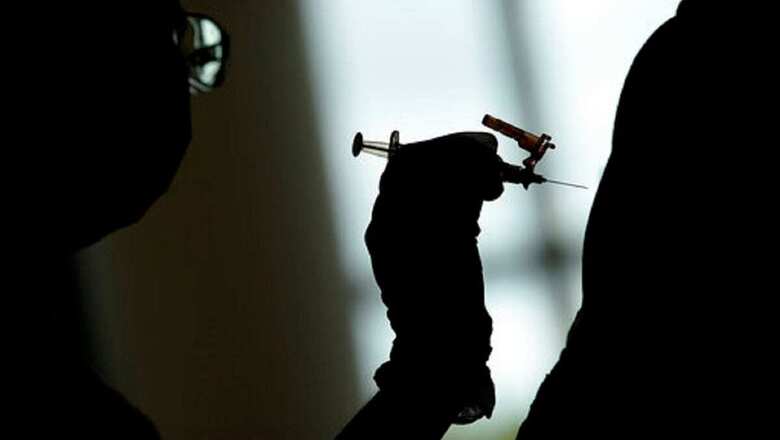
views
India is deliberating research programmes on mix and match of two different vaccines against Covid-19 for the first and second shots, a top government official, who called it a “very fertile area” for scientific studies, has told CNN-News18.
His remarks came in the backdrop of a new international research suggesting that a mix-and-match strategy involving vaccines by Oxford-AstraZeneca and Pfizer-BioNTech produced a potent immune response among participants.
“The mix-and-match strategy for vaccines is a very fertile area for research. We in India will be initiating and mounting similar studies in due course of time,” the official said.
He added that such studies, which could begin in “a few weeks”, will entail “bigger requirements” for the country that is expected to have at least eight vaccines by the end of the year.
Possibilities for India
The government has announced its plan of making available 216 crore doses between August and December. The plan features at least eight candidates: Covishield (the Oxford-AstraZeneca vaccine locally produced by Pune’s Serum Institute of India), Covaxin (manufactured by Bharat Biotech), Russia’s Sputnik V, Bharat Biotech’s intranasal vaccine, BioE’s subunit vaccine, Zydus Cadila’s DNA vaccine, the Novavax vaccine and Genova’s mRNA vaccine.
This list by the government did not include the vaccines by Pfizer-BioNTech, Johnson and Johnson (J&J) and Moderna. In April, the Centre approved recommendations for emergency use of Covid-19 vaccines already cleared by regulators in the US, Europe, Japan and the UK, or those mentioned in the World Health Organization (WHO)’s emergency listing. The three vaccines mentioned above make the cut through this route. In fact, Hyderabad-based BioE has partnered with J&J to make the US multinational’s vaccine in India.
“Currently, data is only available on the mix and match of AstraZeneca and Pfizer (vaccines). Studies will have to be conducted with various vaccines of different platforms. Theoretically, it is a good approach, but we will have to generate solid evidence that mixing and matching vaccines will be beneficial for individuals and for the community in terms of overall vaccine efficacy in interrupting the transmission (of the virus),” said the official quote above.
A section of experts believes that using vaccines based on two different platforms could trigger better immune response in a beneficiary. But no country has allowed mixing of vaccines due to inadequate data, though there is a view that it should be safe. Clinical trials and studies on the subject are underway.
In India, three vaccines are available for use at present: Covishield, Covaxin and Sputnik V. While Covishield and Sputnik V are made on viral vector platforms using adenoviruses, Covaxin is an inactivated vaccine — which means that it is made up of killed coronaviruses. So far, there has been no study in India on mix and match of vaccines.
Encouraging study
Researchers in Spain have conducted trials with 663 volunteers who had already received a dose of the Oxford-AstraZeneca vaccine. Two-thirds of participants were administered the mRNA-based Pfizer vaccine, eight weeks after their first shot of the AstraZeneca vaccine, which uses a weakened version of a common cold virus (known as an adenovirus) from chimpanzees to trigger immune response.
The Pfizer booster dose appeared to have jolted the immune system of recipients, who produced much higher levels of antibodies. The antibodies in their blood serum were also able to neutralise the SARS-CoV-2 virus, which causes Covid-19, in lab tests. There was no change in antibody levels in a control group of 232 people that did not receive a booster. The preliminary results were announced on May 18.
The mix-and-match strategy is known as a heterologous prime and boost, and has been used in the past against diseases such as Ebola and AIDS. Traditionally, doses of the same vaccine are given multiple times as homologous boosts. New findings indicate that prime-boost can be done with different vaccines containing the same antigens. In many cases, such heterologous prime-boost can be more immunogenic than homologous prime-boost.
Read all the Latest News, Breaking News and Coronavirus News here. Follow us on Facebook, Twitter and Telegram.
















Comments
0 comment